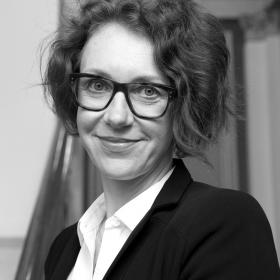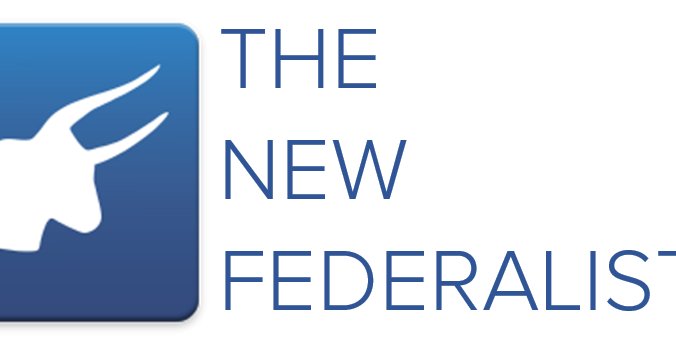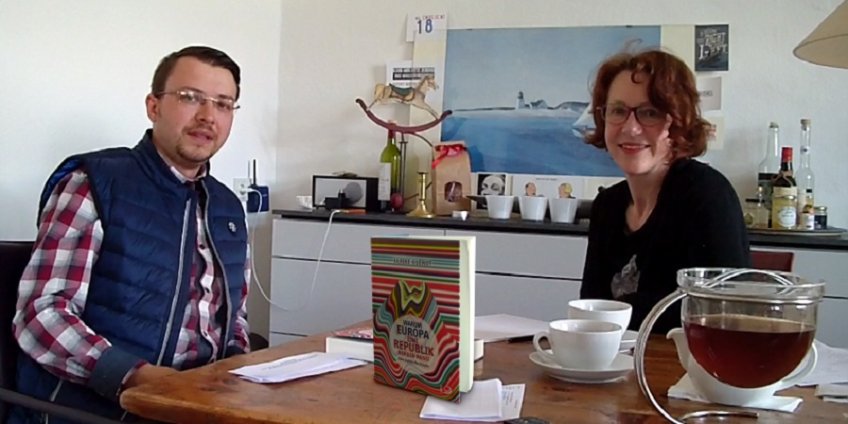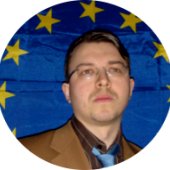treffpunkteuropa.de: It is legitimate to call you an insider of European politics. Even though you haven’t been actively working as politician, you still were indirectly involved in the shaping of European politics. What has currently inspired you to write this book? What is your Motivation?
Ulrike Guérot: Indeed in the early 90s I used to work for Karl Lamers, in the working group on foreign policy, when the Maastricht Treaty was negociated. Subsequently I worked a lot in think tanks in regard to this topic. My live was closely linked to this European project. I have written the book, because 25 years after the Maastricht Treaty, 1992 till today 2016, we still haven’t realised this political union. And to me it seems that during the Euro crisis and because of the Euro crisis we have lost every connection to the political project of Europe as it was meant to be.
Let us imagine: I were an interested reader of this interview, what would you tell me? Why should I spend money on your book?
Because the book introduces a distinctive new contribution to the debate and widens the perspective. It is an invitation to bravely think about the future of Europe without barriers. In the book I outlined how Europe could actually really work. The central question is the concept of sovereignty, that we always tie up to the nation state. At the moment we are witnessing that national sovereignty always collides with the common European interest, in the refugee crisis, but also in the Brexit and Grexit crisis. Therefore I try to deconstruct the term of sovereignty, to tell how Europe institutionally must look totally different, so that a democratic Europe can actually evolve.
You are very harshly critisizing the EU in your book. Is your book in a way kind of EU-hostile?
Well ’hostile’? We would have to first extensively clarify the meaning of hostile. But indeed, I am formulating a very harsh criticism towards the EU. I clearly point at the systemic deficiencies of the EU, that the EU is actually not able to function, to produce good and sustainable European solutions for the European citizens. In that manner you can call me hostile against the system, because I think that under given circumstances the EU is a) not able to reform itself and b) barely producing reasonable European solutions.
In your book you write that political parties like the National Front (France), FPÖ (Austria), or now AfD in Germany, benefit from the fact, that they denounce apparent deficiencies of the EU, while the political center is avoiding a critical debate. Don’t you think you are walking on a dangerously narrow path with this kind of argumentation?
Yes certainly! And in fact this is dangerous and provocative, too. But I stand by that, because I want to make the following clear: Also Jürgen Habermaas identifies technocratic structures and democratic deficit within the EU and openly speaks about it as academic person. Now the question is, why is a academic allowed to say that and in the political sphere we are not allowed to say that? The actual conclusion should be, that we take a look at the democratic deficits that academics point at, take them serious and decide to correct these wrongs.
{}
Furthermore you are claiming that the EU is unpopular, but still two thirds of EU citizens have a longing for Europe. But when looking at election results, just recently in Austria or regional elections in Germany, we observe the highest growth for nationalist and eurosceptic parties and one could doubt this evaluation.
What I have experienced during countless journeys and lectures and this can also be mapped, is that most citizens intuitively have realised: The nation state allone is not able to solve the problems on the continent. We must find some kind of European solutions. The Problem is that a good Europe is not in the political offer. In the political proposition are the populists, that say: ’This is undemocratic! We want out!’ and the others that say: ’There are no alternatives and we have to carry on like that.’
What do you think of the current dominance of the European Council in essential policy fields and decisions? Do you think that the EU has become more comprehensible for the citizens and more democratic, due to the fact that the nationally more familiar heads of state and government lead EU politics?
No, absolutely not. In the framework of the European institutions, the Council is a big problem, because within the Council national cards manifest and everyone will pull a national card, when he thinks he has to do it. In that manner the European Council is actually the central problem of the EU.
The awareness, that the EU isn’t functioning very well, has also reached established politicians so far, but solutions are searched following the idea of ’more nation state’. In regards to the Brexit discussion David Cameron has recently made different suggestions to reform the EU. Often British criticism of the EU focused on an allegedly too high EU budget.
You know, when you are a member in the tennis club and you are saying: ’I want to participate, but I don’t play tennis.’ That is stupid. That is just not done. I cannot appreciate Camerons suggestions. This is a political theatre to avoid the Brexit. Is the EU-Budget too big? No, of course not. The budget of the EU is 0.9 % of the GDP of the European Union. In any case this is not sufficient for big policies. For what needs to be done, namely a social and fiscal union, in which the Euro currency could be embeded, it is way not enough!
Why is the Euro crisis respectively Greek crisis such a central subject in your book?
About the Euro crisis a lot has been published, also coming from a scientific academic corner. In these scientific publications it was always pointed at the central institutional deficiencies of the Euro governance, but in the political discourse we had a different discussion going on. Especially in Germany. This discussion was dominated by the idea, that we in Germany ’pay for everybody’, that we are the victim and so on and so forth and I try to deconstruct that in the book, because it is simply not true.
In the book you are repeatedly mentioning the concept of the ’United States of Europe’, what you define as a ’federation of nation states’. You declare this concept dead and instead damand the ’European Republic’. What do you mean by that?
At first I took a look back into the history of political ideas, from Plato to Cicero and Aristotle to Rousseau and Kant: always when citizens unite for a political project, they have founded a republic by definition. The term republic is the word for a political project of citizens. And let us not forget, the founding fathers Walter Hallstein and Jean Monnet always said that the essence of the European project is the overcoming of the nation states. The suggestion of the book is to say: We now finally realise a political project of Europe, that really tackles the democratic, social and fiscal issues. The Republic is much better to adress these issues, because the term and idea of the Republic have a more positive resonance. People can identify themselves with the Republic and I am convinced, that with it we can again reach people on an emotional level and inspire them.
A very significant concept of your European Republic is the equality of all European citizens. What do you mean by that and where do you see the distinction from the current situation?
The distinction from the current situation is relatively clear. At the moment we are citizens from different nation states, that have engaged into an European project, namely the EU. But the nation states determine, how we, the citizens of Europe, elect, pay taxes and what rights we do have. Despite the single market and legal harmonisation, we are not living in a single common legal space. We are also not sharing a common taxation space. You are paying different taxes here, than in France, or in Finland. Only based on the principle of public and universal political equality, we are at all able to found a political project in terms of a Republic. Then we would be equal in elections, in taxation and in law with equal access to social rights.
The subtitle of your book reveals, that what you are describing in it is a political utopia. Is your book flirting a little bit with its own unworldliness?
Maybe. I don’t have a problem to say, that the way I perceive the world at the moment, I don’t find it very beautiful. And actually it was a need to picture something in contrast to the unbeautifulness of reality, an aesthetic sketch and a little bit of poetry. This book is an invitation for a dialogue and should inspire people to think and dream.
The questions posed in this interview were asked by Michael Vogtmann.

About the interviewee: Ulrike Guérot is a European political scientist and founder of the ’European Democracy Lab’ Berlin. She has worked for a number of notable diverse political think tanks and is generally acknowledged as proven expert in European politics. Her current long term project is the ’European Republic’, on which more information can be found here



Follow the comments: |
|
